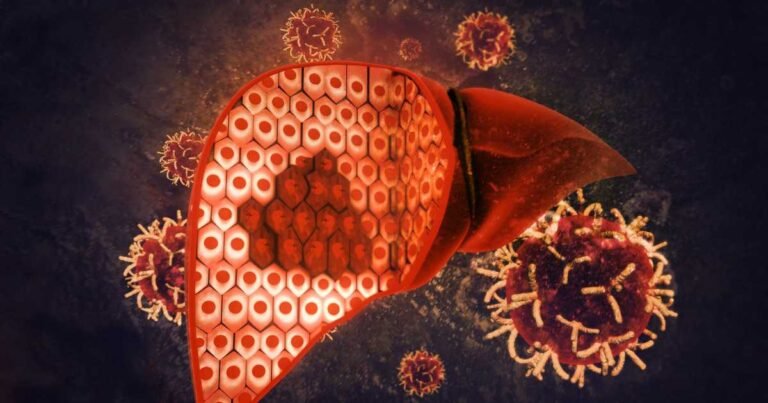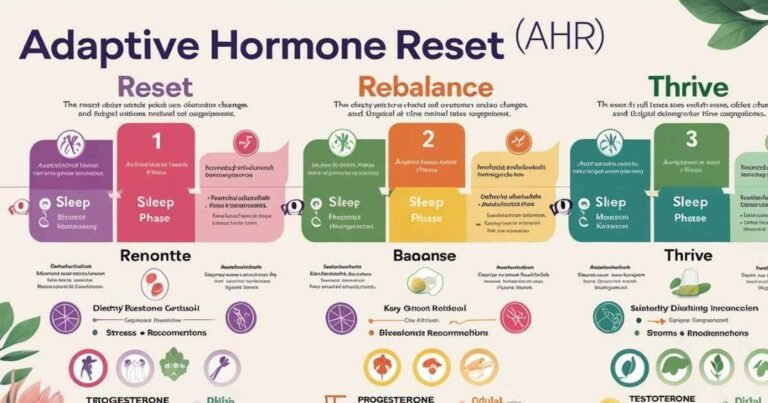Gut Health Hacks: Improve Digestion & Feel Better Fast

Introduction: Why Gut Health Matters More Than You Think
Your gut does more than digest food—it plays a key role in maintaining your entire body’s health.
From digestion to immunity and even mood, your gut plays a vital role in how you feel every day.
But what if your gut becomes imbalanced?
You might experience bloating, fatigue, mood swings, and even skin problems.
In this article, you’ll discover the secrets of gut health—and how to use them to improve both digestion and mental wellness.
You’ll also learn step-by-step solutions, expert tips, and practical tools you can start using today.
Let’s dive in!
Understanding Your Gut—The Forgotten Brain
What Is the Gut Microbiome?
Inside your gut lives a vast community of trillions of bacteria, fungi, and other microbes.
These tiny organisms help break down food, produce vitamins, and support immunity.
But there’s more.
Scientists call the gut the second brain because it directly affects your mood, focus, and stress levels.
The Gut-Brain Connection
The vagus nerve forms a direct communication link between your gut and your brain.
This connection explains why gut issues can cause anxiety and depression.
Real-life example:
If you’ve ever had “butterflies” in your stomach before a big event, that’s the gut-brain link at work.
Signs of Poor Gut Health
Wondering if your gut is out of balance?
Here are common symptoms:
- Bloating or gas
- Constipation or diarrhea
- Food intolerances
- Fatigue
- Anxiety or mood swings
- Skin issues like acne or eczema
Causes of Gut Imbalance
Many factors can damage your gut health, including:
- Antibiotic overuse
- Processed foods
- Stress
- Lack of sleep
- High sugar intake
Why Gut Health Affects Mental Wellness
Your gut produces 90% of your serotonin, the feel-good hormone.
When your gut is unhealthy, serotonin levels drop. This can lead to:
- Depression
- Anxiety
- Irritability
- Brain fog
Building a Healthy Gut—Step-by-Step Guide
Start with Your Diet
Your diet is the most powerful tool for improving gut health.
Here’s how to start:
Eat More Fiber
Fiber feeds good gut bacteria. Aim for:
- Fruits (apples, bananas, berries)
- Vegetables (broccoli, carrots, spinach)
- Whole grains (oats, quinoa, brown rice)
Include Probiotic Foods
Probiotics are live bacteria that help balance your gut. Try:
- Yogurt with live cultures
- Kefir
- Kimchi
- Sauerkraut
- Miso
Add Prebiotics
Prebiotics feed probiotics. Foods include:
- Garlic
- Onions
- Asparagus
- Leeks
- Green bananas
Stay Hydrated
Water helps move food smoothly through your gut.
Tip: Drink at least 8 glasses of water a day for optimal digestion.
Manage Stress
Chronic stress harms gut health. Use these techniques:
- Meditation
- Deep breathing
- Journaling
- Yoga
Get Enough Sleep
Poor sleep disturbs your gut microbiome. Aim for:
- 7-9 hours of quality sleep per night
- A consistent sleep schedule
Avoid Gut-Damaging Habits
Cut back on:
- Processed foods
- Artificial sweeteners
- Excess alcohol
- Unnecessary antibiotics
Comparison Table: Good vs. Bad Gut Habits
| Good Habits | Bad Habits |
|---|---|
| Eating fiber-rich foods | High sugar intake |
| Consuming probiotics | Frequent antibiotic use |
| Managing stress | Skipping sleep |
| Drinking plenty of water | Overconsuming processed foods |
| Sleeping 7-9 hours nightly | Chronic stress |
Troubleshooting Common Gut Issues
How to Reduce Bloating
Bloating is among the most frequent issues people experience with their gut.
Here’s how to fix it:
- Chew food slowly
- Avoid carbonated drinks
- Try ginger tea
- Walk after meals
Real-life example:
Sarah struggled with daily bloating. After switching to a fiber-rich breakfast and drinking more water, her bloating reduced by 80% in 2 weeks.
Solving Constipation
Constipation can be uncomfortable and harmful if ignored.
Use these solutions:
- Eat more fiber
- Drink warm water in the morning
- Exercise daily
- Use natural laxatives like prunes
Handling Diarrhea
For diarrhea relief:
- Eat plain rice or bananas
- Avoid dairy and fried foods
- Stay hydrated with electrolyte drinks
- Use probiotics to restore balance
Managing Food Intolerances
If certain foods upset your stomach, try:
- Keeping a food diary
- Testing for intolerances
- Eliminating trigger foods
- Slowly reintroducing safe foods
Supplements for Gut Health
When to Use Probiotic Supplements
If you can’t get enough probiotics from food, supplements can help.
Look for:
- At least 10 billion CFUs
- Multiple strains of bacteria
- Trusted brands with 3rd-party testing
Other Helpful Supplements
Consider adding:
- Digestive enzymes for better food breakdown
- L-glutamine for gut lining repair
- Omega-3s for reducing gut inflammation
How to Choose the Right Supplement
Follow these tips:
- Read labels carefully
- Avoid fillers and artificial ingredients
- Consult your doctor if you’re unsure
Advanced Gut Health Tips
Try Intermittent Fasting
Intermittent fasting gives your gut time to rest and repair.
Start with:
- 12:12 method (12 hours eating window, 12 hours fasting)
- Gradually shift to 16:8 if comfortable
Use Fermented Foods Daily
Fermented foods naturally boost good bacteria.
Example:
A daily serving of kefir can improve gut diversity in just 3 weeks.
Move Your Body
Exercise improves gut health by:
- Increasing gut bacteria diversity
- Speeding up digestion
- Reducing bloating
Try:
- Walking
- Yoga
- Strength training
Connect with Nature
Spending time outdoors exposes you to diverse microbes.
Tip: Garden barefoot or walk in parks to naturally boost gut bacteria.
FAQs About Gut Health
How long does it take to improve gut health?
Most people notice changes in 2-4 weeks after starting gut-friendly habits.
Can gut health affect skin?
Yes! Poor gut health can cause acne, eczema, and rashes due to inflammation.
Is yogurt enough for probiotics?
It helps, but variety is better. Include different probiotic foods for best results.
What is leaky gut?
Leaky gut happens when your intestinal lining gets damaged. This allows harmful particles into the bloodstream, causing inflammation.
Are all probiotics the same?
No. Different strains help with different issues. Always choose a multi-strain probiotic.
Conclusion: Take Control of Your Gut Health Today
Your gut controls more than digestion—it shapes your mood, energy, and long-term wellness.
By following the steps in this guide, you can:
- Improve digestion
- Boost mental clarity
- Strengthen your immune system
Start today by adding fiber and probiotics, managing stress, and staying hydrated.
If you’re ready to transform your health, take action now—your gut will thank you!






